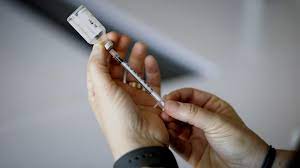Researchers convert stomach stem cells into insulin-secreting cells, paving the way for a potential cure for diabetes.
Type 1 diabetes, also known as juvenile diabetes or insulin-dependent diabetes, is a chronic autoimmune condition.
It occurs when the body’s immune system mistakenly attacks and destroys the insulin-producing beta cells in the pancreas. As a result, insulin, a hormone that regulates blood glucose levels and enables cells to utilize glucose for energy, is in short supply for individuals with type 1 diabetes.
To address this challenge, scientists at Weill Cornell Medicine have made a remarkable breakthrough.
They successfully transformed stem cells from the human stomach into insulin-secreting cells that function similarly to healthy pancreatic beta cells. This groundbreaking discovery brings hope for a potential cure for diabetes, offering millions of individuals who rely on insulin injections a brighter future.
In the quest to find a solution for type 1 diabetes, researchers have explored using stem cells to generate insulin-producing cells, replacing the damaged beta cells destroyed by the immune system. Recently, attention has turned to gastric stem cells, which can regenerate the intestinal lining and develop into gut-specific tissues.
How the study proved the use of stomach stem cells for diabetes
By converting gastric stem cells into insulin-secreting cells, the researchers have taken a significant stride toward finding a therapeutic answer for type 1 diabetes.The study employed a non-surgical procedure called endoscopy to collect gastric stem cells. These cells were transformed through innovative techniques into beta-like cells known as gastric insulin-secreting cells (GINS). The GINS exhibited glucose sensitivity within a short period and responded to elevated blood glucose levels by releasing insulin.

To assess the potential of GINS, the cells were transplanted into mice with diabetes. Encouragingly, the transplanted cells behaved similarly to natural pancreatic beta cells. They effectively regulated blood glucose levels by secreting insulin, and this insulin production was sustained throughout the six-month monitoring period.
The findings of this research team represent a critical proof-of-concept study, laying a solid foundation for developing patient-specific cell-based treatments. This approach holds the promise of revolutionizing the management of type 1 and severe type 2 diabetes, reducing the dependence on external insulin administration, and addressing the challenges of transplant rejection.
Considering that approximately 8.4 million people worldwide were living with type 1 diabetes in 2021, this breakthrough brings hope for a future where individuals can restore their insulin production. In addition, the researchers are now paving the way for future clinical trials and advancements in diabetes treatment.
Hence, thanks to the incredible potential of stomach stem cells, the path to a cure for diabetes may be within reach. As scientists refine their techniques and expand production for human transplantation, the dream of a world free from the daily burden of insulin injections is becoming increasingly tangible.
























